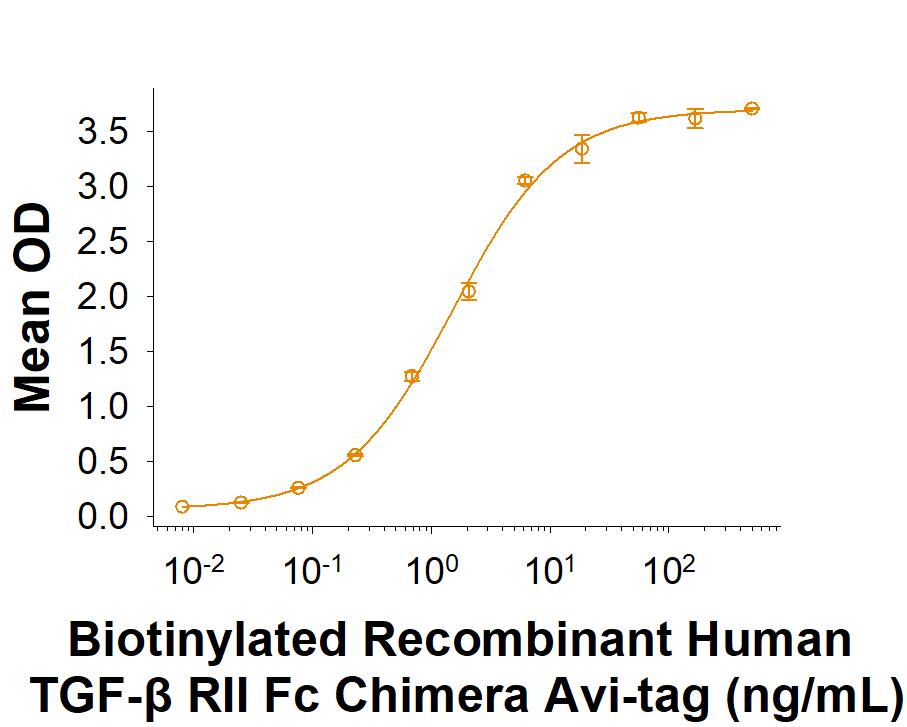TGF-beta RII: Proteins and Enzymes
Most cell types express three sizes of receptors for TGF-beta. These are designated Type I (53 kDa), Type II (70 - 85 kDa), and Type III (250 - 350 kDa). The Type I receptor is a membrane-bound serine/threonine kinase that apparently requires the presence of the Type II receptor to bind TGF-beta. The Type II receptor is also a membrane-bound serine/threonine kinase that binds TGF-beta1 and TGF-beta 3 with high affinity and TGF-beta 2 with much lower affinity. The Type I and Type II receptors together form a heterodimeric signaling complex that is essential for the transduction of the anti-proliferative signals of TGF-beta. The Type III receptor is a transmembrane proteoglycan with a large extracellular domain and a 43 amino acid residue cytoplasmic domain. The cytoplasmic domain of the Type III receptor lacks an obvious signaling motif and the receptor may not be involved directly in signal transduction.
6 results for "TGF-beta RII Proteins and Enzymes" in Products
6 results for "TGF-beta RII Proteins and Enzymes" in Products
TGF-beta RII: Proteins and Enzymes
Most cell types express three sizes of receptors for TGF-beta. These are designated Type I (53 kDa), Type II (70 - 85 kDa), and Type III (250 - 350 kDa). The Type I receptor is a membrane-bound serine/threonine kinase that apparently requires the presence of the Type II receptor to bind TGF-beta. The Type II receptor is also a membrane-bound serine/threonine kinase that binds TGF-beta1 and TGF-beta 3 with high affinity and TGF-beta 2 with much lower affinity. The Type I and Type II receptors together form a heterodimeric signaling complex that is essential for the transduction of the anti-proliferative signals of TGF-beta. The Type III receptor is a transmembrane proteoglycan with a large extracellular domain and a 43 amino acid residue cytoplasmic domain. The cytoplasmic domain of the Type III receptor lacks an obvious signaling motif and the receptor may not be involved directly in signal transduction.
| Source: | NS0 |
| Accession #: | P37173.2 |
| Applications: | BA |
| Source: | NS0 |
| Accession #: | P37173 |
| Applications: | BA |
| Source: | NS0 |
| Accession #: | Q62312 |
| Applications: | BA |
| Source: | NS0 |
| Accession #: | Q62312.1 |
| Applications: | BA |
| Source: | NS0 |
| Accession #: | NP_001020018 |
| Applications: | BA |
| Source: | HEK293 |
| Accession #: | P37173.2 |
| Applications: | BA |



